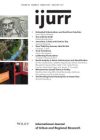Technical networks (transport, telecommunications, energy etc.) possess paradoxical virtues. They produce ‘structuring effects’ on space, obtaining comparative advantages for the places they serve. But they are ubiquitous factors which also enable a homogenization of space. The myths of deterritorialization and dual space are refuted by empirical analyses of the interaction between networks and territories. Networks ‘format’ market areas and political territories. They create matrixes which until now were controlled by the public powers. Linked to current transformations – globalization, deregulation – the present mode of development of the technical macro‐systems brings about a telescoping of geographical scales which is having an adverse effect on the historic compromise between networks and territories. The boundaries of traditional political space have become obsolete and an economic rationale in the form of an extension of the technical networks predominates. In order to rediscover their policy‐making capacity, local authorities must pay more attention to controlling the occupation of public space as well as to the design and organization of the networks’ hubs. They should encourage the emergence of users as players in the regulation of public utilities so that debates on universal service and territorial equality may be activated.
Details
Written by:
Jean‐Marc Offner
Digital Object Identifier (DOI)
10.1111/1468-2427.00241
About DOI
Read full article as PDF
Read full article as HTML
See the references for this article
